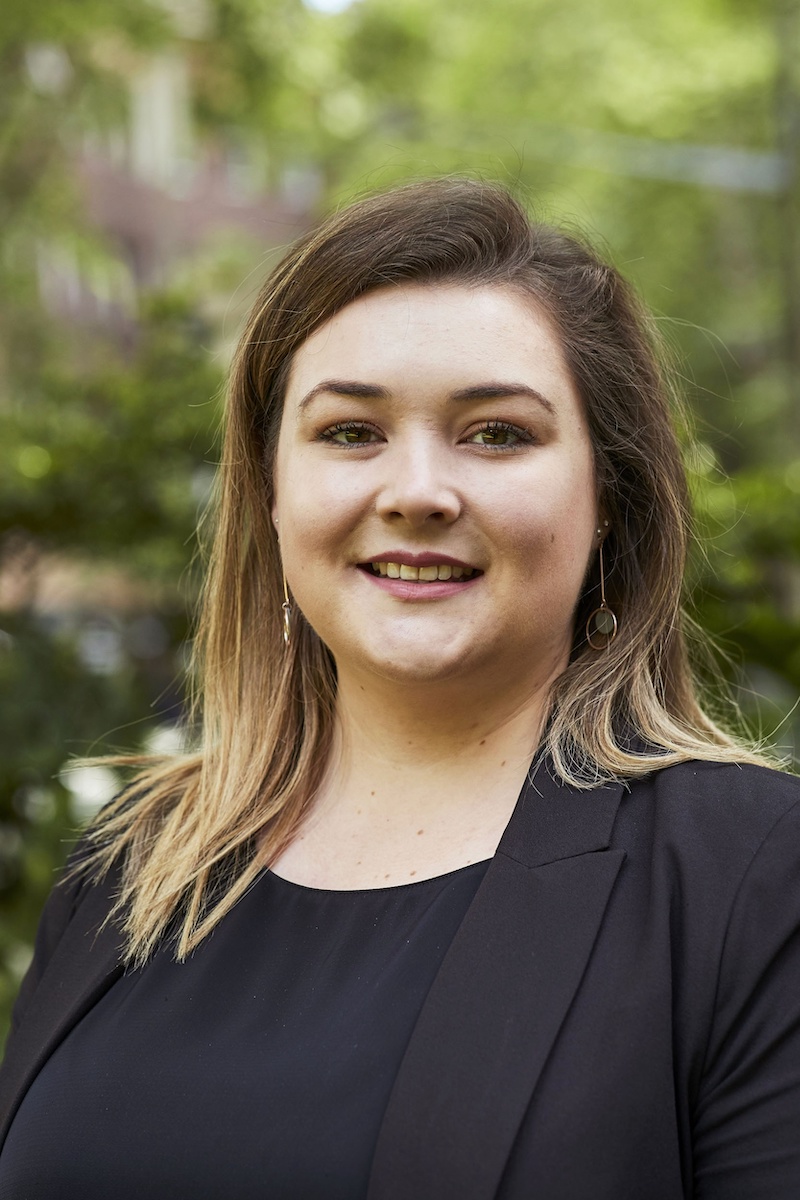Caitlin James is Associate at Australian Impact Investments
What was your first job?
Over the years, I have had so many odd jobs; I did supermarket demonstrations for a frozen dim sum company, sold fruit ice blocks at a cart in front of the Opera House, and worked in a specialty brownie bakery. But my first job was as a barista at my local Gloria Jeans Coffees, where I could work an evening shift after school and learn how to make coffee.
When did you know you wanted to work in finance/business?
Honestly, I didn’t! I studied political science and political economics at university, so I always thought I would end up in public policy or the not-for-profit sector.
My first insight into finance was in my last year of university when I started a part-time role at Ethinvest, the founding shareholder of Australian Impact Investments (Aii). This was an excellent opportunity to learn about financial planning, advice and investment, and when the opportunity came up to transition to Aii, I jumped on it.
When did you first discover the concept of Impact Investing?
While working at Ethinvest, my main task was to prepare clients’ ‘tax packs’, which involved checking that we had every holding or tax statement from every investment in every client portfolio. It was a meticulous and admin-heavy role, but as a part of that process, I kept seeing the names of assets like the ‘Livelihood Impact Fund’, ‘Giant Leap Fund’ and ‘Sydney Renewable Power Company’. I looked into what they were and knew I had to learn more about how they generated impact and how I could get involved.
What’s one exciting development you and your team have in the pipeline?
We are increasingly engaging with clients around building impact portfolios, which involves intentionally considering and managing each investment for impact. We call this a total impact strategy, and it views impact as a lens across every asset class rather than just a subset of an existing portfolio. This work is exciting as it helps clients to align their business or philanthropic objectives with investment goals and address social and environmental challenges across the portfolio. We are excited to see more and more capital shifting to assets that avoid harm as a bare minimum but aim to benefit people and planet and contribute to solutions where possible.
What was the most interesting impact deal (from any team across Asia/Pacific) in the past 12 months?
Not so much a deal but a strategy. Shareholder activism is gaining much traction with fund managers and individual investors. Grok Ventures’ pursuit of AGL Energy Limited is an excellent example of an aggressive and innovative activism strategy. Other organisations like the Australian Centre for Corporate Responsibility and Market Forces have consistently pursued listed Australian companies, and some managers have taken that strategy to private markets.
This is an exciting and developing space for impact investors, particularly as the effects of the climate crisis are felt in communities around the world. However, monitoring activism strategies in both public and private markets is also important to ensure that impact claims can be substantiated.
Name one high-impact company (globally) that investors should keep their eye on.
Aii is currently hiring, and we have been using Applied, a recruitment software that reduces bias and encourages fairness, inclusivity, and diversity. Applied is a portfolio company of the Giant Leap Fund, which our clients are invested in. It has been a great opportunity to try out the software for ourselves, and it has proved extremely useful in the recruitment process. As impact investors, we understand how important it is to address inequalities and bias in recruitment because, at the end of the day, we want to practice what we preach and create a workplace inclusive of diverse backgrounds and opinions.
What’s your vision for impact investing in 5 years’ time?
Like anyone, I want to see impact integrated into traditional investing. More specifically, I hope to see more opportunities to invest in diversity and inclusion, whether through promoting Indigenous founders or opportunities that aim to improve the quality of life of women.

